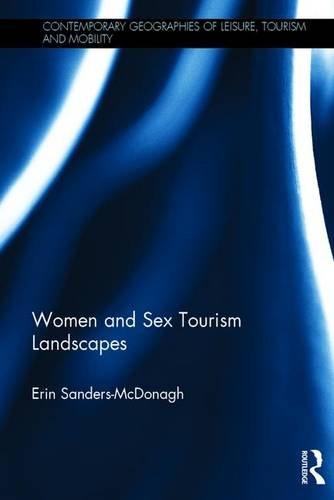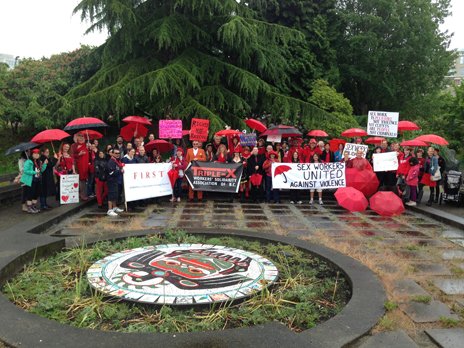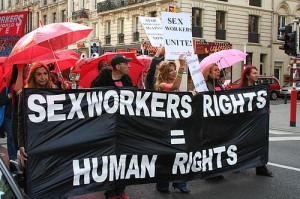
Paul Maginn, Erin Sanders-Mcdonagh and I are pleased to announce the call for papers for this year’s American Association of Geographers Conference in New Orleans in April next year (see more details here: http://www.aag.org/cs/events/event_detail?eventId=1258 ). Although a geography conference, it is a very interdisciplinary event and we welcome submissions of abstracts from all perspectives on sex, sexuality and sex work. We have run special sessions on these themes for the last few years at this conference and it is always a really engaging and enjoyable event. We have also been fortunate in the past to secure some contributory funding for sex workers to attend and present from the conference enrichment fund, and would endeavour to do so again.
Do get in touch if you would like some clarification before submitting something. The deadline is 16th October to submit an abstract.
ASSOCIATION OF AMERICAN GEOGRAPHERS CONFERENCE
NEW ORLEANS, 2018
#GEOSEX18 CALL FOR ABSTRACTS/PAPERS
Geographies of Sex, Sexuality and Sex Work:
Myths, Imaginaries and Realities
In the past decade questions about sex, sexuality and sex work have come to dominate media, political and social debates. These debates have seen the tectonic plates of ‘conservatism’ and ‘liberalism’ collide and sheer against one another. There is considerable variation in the dynamics of such relations across national and international boundaries. In the predominantly Catholic country of Ireland, for example, a referendum on marriage equality saw the LGBTQ community granted the same rights as heterosexual couples. In Northern Ireland (NI), however, the Protestant-dominated local Assembly has thus far steadfastly refused to pass legislation on marriage equality five times. The failure to pass this legislation has been due largely to opposition from the largest political party in NI –the Democratic Unionist Party – who has effectively vetoed the issue each time it has to a vote. And, in Australia the current Liberal Government has prevaricated on the issue of marriage equality by agreeing to hold a non-binding postal plebiscite on the issue rather than letting the Parliament decide on the issue.
On the matter of sex work, some nations – e.g. Canada, France, Northern Ireland and the Republic of Ireland – have recently introduced legislation that criminalises the purchase of commercial sex services in the name of protecting (female) sex workers and victims of human trafficking. This legislation was introduced in these jurisdictions following major campaigning by conservative politicians, religious organisations, NGOs and radical feminist organisations often working together. Relatedly, other state actors have sought to prohibit access to pornography by framing the consumption of adult entertainment as an issue that affects social and mental well-being. For example, participants at the 2016 Republican National Convention in the USA suggested that viewing pornography constituted a ‘public health crisis’. In the UK the government has recently sought to introduce age verification mechanisms and regulations in order to prevent people from viewing particular sexual acts online.
All the while, the consumption of online (heteronormative) pornography continues to grow year-on-year as data from one of the world’s largest free porn websites reveals each year. There is relatively little publicly available data on the consumption of non-heteronormative types of porn, although anecdotal evidence points to significant growth in “feminist-porn and alt-porn”. Camming has also becoming an increasingly popular mode of adult entertainment, with an estimated 20,000 performers online in the US at any given time. Even professional adult performers now engage in cam-work (and other forms of adult entertainment such as stripping and feature dancing) as a means of generating supplementary income due to the de-industrialisation of the porn industry in the wake of free online porn hosting sites. New and improved technologies have therefore created alternative possibilities for sex work landscapes.
Sexual and gender identity have also been the focus of much heated debate, especially in the last 5 years as debates about transgenderism have become more prominent. The increasing visibility/audibility of transgender people and issues related to trans rights have, in some cases, resulted in moral panics about trans people being in public spaces and using public facilities, especially toilets. Ultimately, trans folk have endured stigma and stereotypes because of their gendered/sexual identities and have been subject to discrimination and a denial of their human rights.
Advances in digital technology and the ‘app-ification’ of smart phones have had a profound impact on the socio-spatial dynamics of human sexuality and commericalised forms of sexual services. The emergence of dating websites, online escort agencies and personal ad sites, hook-up apps and web-camming for personal and commercial purposes have enhanced the opportunity for direct and indirect intimate and risqué experiences. Similarly, the rise of virtual reality, smart sex toys and sex robots have raised various questions about the future direction of human, gender and sexual relations.
In light of the highly complex and dynamic sexual landscapes that characterize the 21st century, this special session – #GeoSex18 – calls for papers that offer critical analyses on a range of myths, imaginaries and realities pertaining to sex, sexuality and sex work that speak to one or more of the following broad topics:
- Community, diversity and mobility within the sex industry;
- Community, diversity and mobility within the LGBT community;
- Gender/sexual identities and fluidities;
- Sexual dissidents, activism and advocacy;
- Human trafficking/migrant sex workers;
- Human and labour rights in sex work;
- Gentrification and its impacts on queer spaces/red light districts;
- Health and wellbeing amongst sexual minorities;
- Stigma/stereotypes/social exclusion of sexual minorities and the sex industry;
- Crime/violence towards sexual minorities and sex workers;
- Production/distribution/consumption of pornography/adult entertainment;
- Geographies of swinging/dogging/cruising;
- Digital geographies of sex, sexuality and sex work;
- Virtual reality, sexbots and human sexual relations;
- Stigma and social exclusion of/in the sex industry;
- Policing, criminal justice and sexed spaces;
- Labour rights, health and safety issues within the sex industry;
- Policy, politics and regulation of sexual landscapes;
- Reproductive rights;
- Liminal spaces/stigmatisation of sexuality, sex work and the sex industry;
- BDSM/Kink/fetish spaces/communities; and
- Censorship and sexualisation.
The #GeoSex18 special session series welcomes abstracts/papers from scholars, policy researchers within government agencies, consultancies, NGOs and sex work advocacy/support organisations and research-minded sex work activists from a range of disciplines and ideological/theoretical/methodological/empirical standpoints. If you are interested in taking part in this special session please send your abstract including: (i) paper title; (ii) author(s); (iii) institutional affiliation(s); (iv) email addresses; (v) a 250 word (maximum) abstract; and (vi) 5 key words to the co-convenors at GeoSex16@gmail.com by no later than 16th October 2017.
Co-Convenors:
Dr Paul J. Maginn, University of Western Australia (Australia)
Dr. Emily Cooper, University of Central Lancashire (UK)
Dr. Erin Sanders-McDonagh, University of Kent (UK)
Erin also has a new book out this year, entitled Women And Sex Tourism Landscapes, published by Routledge, which may be of interest to potential presenters! You can view the details here: https://www.routledge.com/Women-and-Sex-Tourism-Landscapes/Sanders-McDonagh/p/book/9781138814547 .





